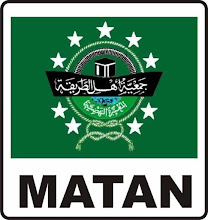Indonesia needs a strong water services law
Mohamad Mova Al `Afghani, Dundee, UK | Mon, 08/31/2009 11:56 AM | Opinion
http://www.thejakartapost.com/news/2009/08/31/indonesia-needs-a-strong-water-services-law.html
The current condition in the water and sanitation sector is bleak. Only 31 percent of the urban population and 17 percent of the total population had access to piped water. Around 80 million Indonesians lack access to sanitation, contributing to 100,000 deaths annually and economic losses of up to US$6.3 billion.
The water law that was enacted in 2004 comprehensively regulates water as a finite natural resource. However, of all the law's 100 articles, only one (Article 40) specifically regulates water and sanitation services.
Meanwhile, the implementing regulation of Article 40, Government Regulation No. 16/2005 on the Development of Drinking Water Provision Systems (PP-16) regulates water and sanitation services only generally.
There are several possible reasons for this. The first is that the government perceives water services as a local problem and as such considers municipalities to be primarily responsible for water services. The second reason is that in order to avoid the law from being invalidated by the Constitutional Court, the Water Law does not regulate services specifically, but instead broadly and vaguely.
Indeed, the water law does not contain the word "privatization" but it does suggest at Article 40 that the "..private sector, as well as the cooperatives and other members of the society" may participate in the development of water services. Of course, some investment in water supply infrastructure can be small if they occur in rural areas.
However, in cities, water projects can be worth millions of dollars and involve multinational corporations and foreign lenders. It is certainly inadequate to regulate both these operations under the same article.
It is worth noting that the governance of water as a resource is different from water services, even though they are interrelated. The governance of water resources encompasses the management of groundwater, rivers, wetlands, lakes, catchments areas, effluent discharge and how water is allocated to competing interests such as the industrial, residential, farming and hydropower sectors.
The governance of water services is different as it deals with water supply and sanitation infrastructure (sewerage), as well as the rights and responsibilities these utilities have and what roles local government plays.
The interconnection between *services' and *resources' only comes where water is abstracted from the environment by the utility and returned to the environment as waste.
Due to the complexity of the governance of water services, some countries regulate them in a specific law. In the UK and Scotland, they are regulated under the Water Industry Act, and in South Africa they are regulated under the Water Services Act. France does not have any specific water services law, however, models of private participation are regulated explicitly through multiple legislations. These legislations, backed by the court, which can act as a quasi-regulator, explicitly acknowledges the legal relation between municipalities, consumers and concessionaire holders and regulates their rights and responsibilities.
The water services law has important functions for both consumers and investors. It protects consumers from disconnection or limitation of supply (in Indonesia, disconnection is allowed by PP-16, while in the UK and South Africa it is illegal to disconnect), it establishes a consultation mechanism for tariff setting, sets out transparency requirements and regulatory accounts, sets quality standards for drinking water and details consumer rights.
In Indonesia, the laws do not define what the "minimum standard of services" is, as it is defined in a contract. In many other jurisdictions, these standards are not subjected to market mechanisms through contracts but are a matter of statutory obligation. The reason for this is because a sub-standard service is a public health issue which requires state intervention.
Note that one of the functions of the water services law is guaranteeing the property rights of the water utility. Without sufficient regulation, investors mainly depend on contracts. The political character of water services sometimes presses local governments to assume control of some rights of utility providers, such as denying tariff increases, or even striping them off their concessions when they lose popular support.
The problem in Indonesia is that the government views private participation to be desirable in the water sector, but the Constitutional Court and the civil societies are very reactive to the idea. So the parliament and the government regulate privatization discreetly in order to avoid the wrath of the court and civil society.
In effect, privatization happens without adequate statutory oversight. This has strong implications for consumers and investors. For consumers, this means that their rights to enjoy good quality, uninterrupted water supply at an affordable rate and their rights to complain and to request compensation for substandard services is not legally guaranteed, but is simply a matter of private arrangements enumerated in a contract.
For investors, this means that their investment relies only in the mercy of local government in honoring their contract. If there is a dispute between the government and an investor, the court and tribunals will be left in the dark, as there are no clear rules that regulate the settlement of disputes. Hence, without a water services law, their investment will be at risk.
The writer is a Ph.D student at the UNESCO Centre for Water Law, Policy and Science at the University of Dundee, UK
Rabu, 15 Desember 2010
Langganan:
Posting Komentar (Atom)



Tidak ada komentar:
Posting Komentar